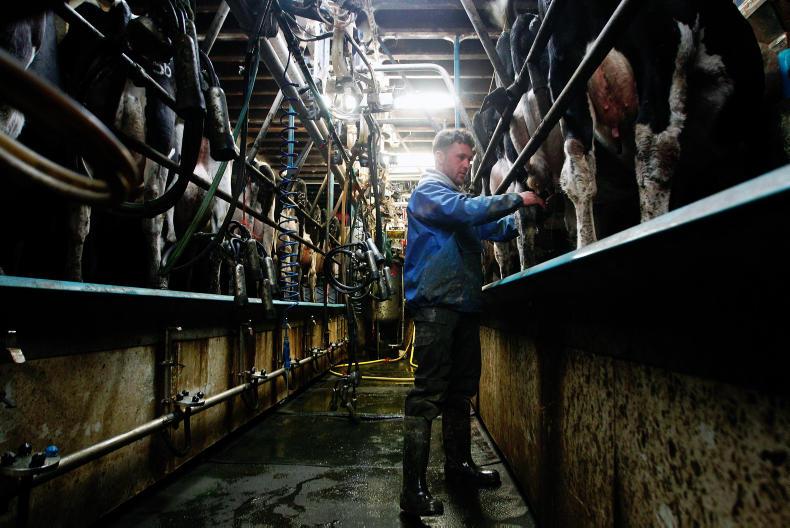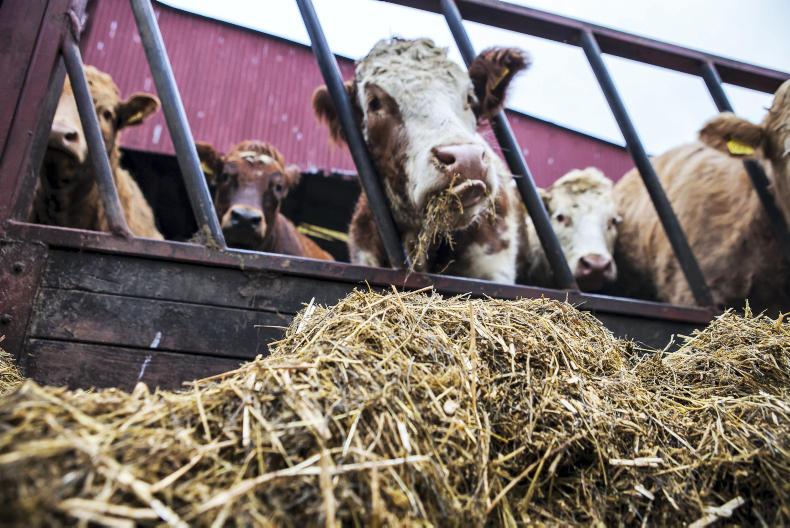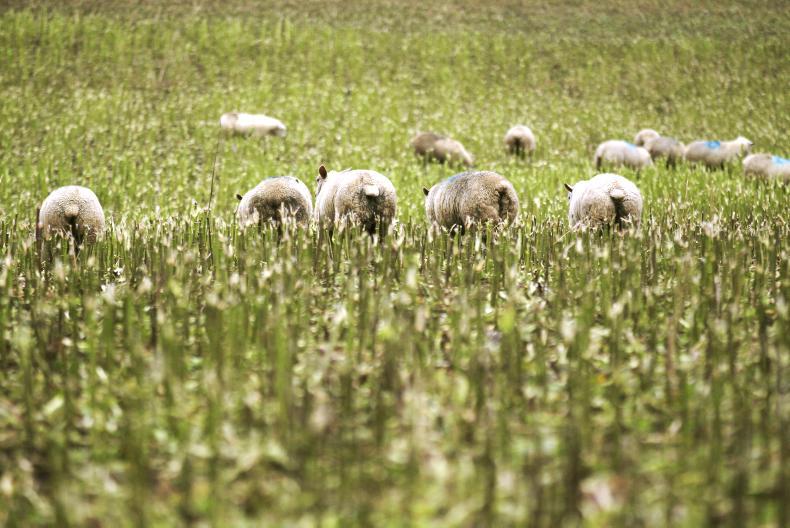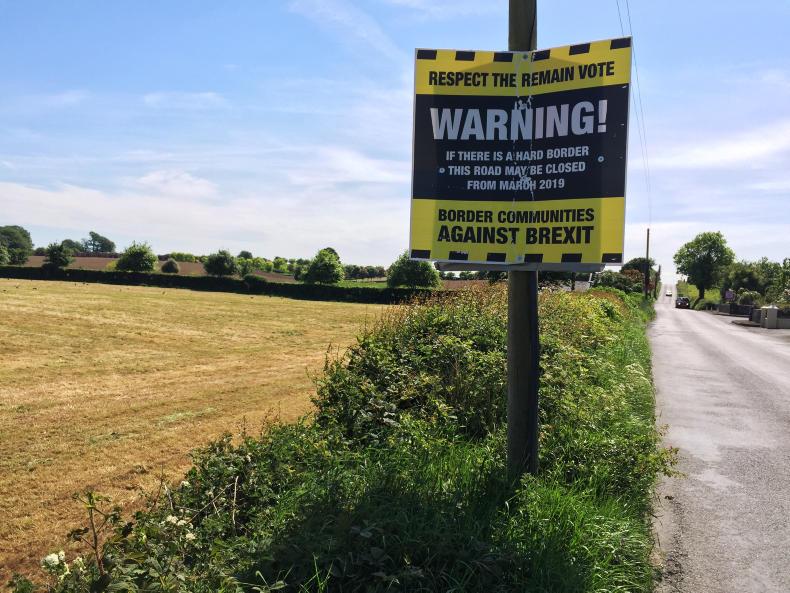The trading relationship between Ireland and Northern Ireland and Ireland the rest of Britain is of critical importance to both economies.
In relation to the agri-food sector, trading between the Republic of Ireland and Britain totalled €4.1bn in 2016, while trading between the Republic of Ireland and Northern Ireland was €664m.
Processors such as a Glanbia, Strathroy, Lakeland, LacPatrick and Aurivo have suppliers both sides of the border
The agreement reached in the early hours of Friday morning means that, regardless of how talks will progress between the EU and the UK, there will be no hard border on the island of Ireland and that Northern Ireland will not be treated differently to the rest of the UK.
It should allow for ease of trading between Ireland and the UK.
This is critical to the future trading relationship between Ireland and the UK.
Here we take a look at what the agreement means for Ireland’s farmers.
Total imports of milk into the Republic for processing in 2016 was the highest on record and amounted to 813m litres.
This is an increase of 219m litres, or 37%, on 2015, according to the National Milk Agency.
All 813m litres imported into the Republic came from Northern Ireland and equates to 37% of all milk produced in NI last year.
And in relation to cheddar cheese, 80,000t or two-thirds of production, is exported to Britain from the Republic of Ireland.
Processing
At a basic and fundamental level, the lack of a hard border will make the processing of milk possible once the UK exits the EU in March 2019.
Processors such as Glanbia, Strathroy, Lakeland, LacPatrick and Aurivo have suppliers on both sides of the border.
Lakeland has grown its pool to 1.2bn litres with the acquisition of Northern Ireland coop Fane Valley. All the milk goes to Baileborough in Co Cavan for processing.

Aurivo has suppliers as far north as Antrim, whose milk goes to Ballaghaderreen in Co Roscommon for processing.
Strathroy has suppliers as far south as Wexford, with the milk then packed in Omagh, Co Tyrone.
Some 100m litres of LacPatrick’s 650m pool is south of the border and it has just turned on the switch of a new dryer in Artigarvan, Co Tyrone.
The agreement guarantees the all-island dairy economy which has been created over the years and it underpins the regulatory integrity of food from the island of Ireland.
Article 56 in the agreement in relation to the land bridge is key for our market access to the rest of the single market and the world.
Britain is the most important market for Irish beef. It is a mature market that has grown and developed over decades.
Irish beef exports to Britain account for half of all production, approximately 250,000t annually.
Britain is less than 70% self-sufficient for its beef needs, so therefore needs a partner who produces a similar product to that which is made by its own farmers.
The beef industry has endured a turbulent time since the UK electorate voted to leave to the EU. Euro-sterling fluctuations resulted in exporters of beef to Britain seeing their margins eroded, which was then passed back on to the farmer.
The importance of Britain to the Irish beef sector cannot be underestimated.

While Britain has a beef supply deficit, the EU as a whole is in surplus when it comes to beef.
A hard border would introduce daunting tariffs to send beef to Britain post-Brexit and would create an even greater oversupply of beef in Europe.
Live cattle
On the live cattle trade, ease of trade between north and south is critical.
There is no significant live trade of cattle from Ireland to the rest of Britain, but the mart trade, particularly along the border and west, is reliant on the buyer from the Northern Ireland farmer and feedlot.
While there is little or no chance of the exchange rate returning to 70p to €1 next year, there is still a need to keep the northern buyer at the ring. This agreement ensures a trading relationship can continue.
Some 400,000 lambs travel from Northern Ireland to the Republic for processing each year.
This is about half of Northern Ireland’s total production.

These lambs go south for processing but the majority of those then go Britain for further trade. The announcement means that this complex trading arrangement can continue without the presence of a border.
As sheep are travelling across the border from Northern Ireland to the Republic, in the region of 300,000 pigs from the south head to the north for processing at Karro Meats in Cookstown, Co Tyrone.
Pig farmers in the Republic of Ireland have used the processing capabilities in Northern Ireland as added competition to the Republic of Ireland processors.

The Karro price traditionally runs slightly ahead of the price in the Republic of Ireland for the majority of the year.
Access to pigs from the Republic of Ireland is important too for Karro, as it gives the processor a foothold in the foodservice sector south of the border.
Read more
No deal is better than a bad deal for Ireland
Full Brexit coverage
The trading relationship between Ireland and Northern Ireland and Ireland the rest of Britain is of critical importance to both economies.
In relation to the agri-food sector, trading between the Republic of Ireland and Britain totalled €4.1bn in 2016, while trading between the Republic of Ireland and Northern Ireland was €664m.
Processors such as a Glanbia, Strathroy, Lakeland, LacPatrick and Aurivo have suppliers both sides of the border
The agreement reached in the early hours of Friday morning means that, regardless of how talks will progress between the EU and the UK, there will be no hard border on the island of Ireland and that Northern Ireland will not be treated differently to the rest of the UK.
It should allow for ease of trading between Ireland and the UK.
This is critical to the future trading relationship between Ireland and the UK.
Here we take a look at what the agreement means for Ireland’s farmers.
Total imports of milk into the Republic for processing in 2016 was the highest on record and amounted to 813m litres.
This is an increase of 219m litres, or 37%, on 2015, according to the National Milk Agency.
All 813m litres imported into the Republic came from Northern Ireland and equates to 37% of all milk produced in NI last year.
And in relation to cheddar cheese, 80,000t or two-thirds of production, is exported to Britain from the Republic of Ireland.
Processing
At a basic and fundamental level, the lack of a hard border will make the processing of milk possible once the UK exits the EU in March 2019.
Processors such as Glanbia, Strathroy, Lakeland, LacPatrick and Aurivo have suppliers on both sides of the border.
Lakeland has grown its pool to 1.2bn litres with the acquisition of Northern Ireland coop Fane Valley. All the milk goes to Baileborough in Co Cavan for processing.

Aurivo has suppliers as far north as Antrim, whose milk goes to Ballaghaderreen in Co Roscommon for processing.
Strathroy has suppliers as far south as Wexford, with the milk then packed in Omagh, Co Tyrone.
Some 100m litres of LacPatrick’s 650m pool is south of the border and it has just turned on the switch of a new dryer in Artigarvan, Co Tyrone.
The agreement guarantees the all-island dairy economy which has been created over the years and it underpins the regulatory integrity of food from the island of Ireland.
Article 56 in the agreement in relation to the land bridge is key for our market access to the rest of the single market and the world.
Britain is the most important market for Irish beef. It is a mature market that has grown and developed over decades.
Irish beef exports to Britain account for half of all production, approximately 250,000t annually.
Britain is less than 70% self-sufficient for its beef needs, so therefore needs a partner who produces a similar product to that which is made by its own farmers.
The beef industry has endured a turbulent time since the UK electorate voted to leave to the EU. Euro-sterling fluctuations resulted in exporters of beef to Britain seeing their margins eroded, which was then passed back on to the farmer.
The importance of Britain to the Irish beef sector cannot be underestimated.

While Britain has a beef supply deficit, the EU as a whole is in surplus when it comes to beef.
A hard border would introduce daunting tariffs to send beef to Britain post-Brexit and would create an even greater oversupply of beef in Europe.
Live cattle
On the live cattle trade, ease of trade between north and south is critical.
There is no significant live trade of cattle from Ireland to the rest of Britain, but the mart trade, particularly along the border and west, is reliant on the buyer from the Northern Ireland farmer and feedlot.
While there is little or no chance of the exchange rate returning to 70p to €1 next year, there is still a need to keep the northern buyer at the ring. This agreement ensures a trading relationship can continue.
Some 400,000 lambs travel from Northern Ireland to the Republic for processing each year.
This is about half of Northern Ireland’s total production.

These lambs go south for processing but the majority of those then go Britain for further trade. The announcement means that this complex trading arrangement can continue without the presence of a border.
As sheep are travelling across the border from Northern Ireland to the Republic, in the region of 300,000 pigs from the south head to the north for processing at Karro Meats in Cookstown, Co Tyrone.
Pig farmers in the Republic of Ireland have used the processing capabilities in Northern Ireland as added competition to the Republic of Ireland processors.

The Karro price traditionally runs slightly ahead of the price in the Republic of Ireland for the majority of the year.
Access to pigs from the Republic of Ireland is important too for Karro, as it gives the processor a foothold in the foodservice sector south of the border.
Read more
No deal is better than a bad deal for Ireland
Full Brexit coverage










 This is a subscriber-only article
This is a subscriber-only article










SHARING OPTIONS: